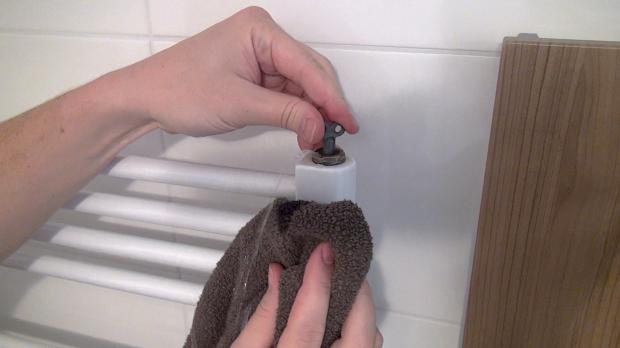- No products in the cart.
How To Bleed A Towel Radiator
10
Sep
How To Bleed A Towel Radiator
Bleeding a towel radiator is a simple DIY task that helps release trapped air from the system, improving its efficiency and heat output. Here's a step-by-step guide you can follow:
🔧 What You’ll Need:
-
Radiator bleed key (or flathead screwdriver, depending on your radiator valve)
-
Small bowl or cup
-
Cloth or towel
🛠️ Step-by-Step: How to Bleed a Towel Radiator
-
Turn Off Heating
-
Ensure the central heating is off and the radiator is cool to avoid burning yourself or releasing hot water.
-
-
Locate the Bleed Valve
-
Usually found at the top corner of the towel radiator.
-
It looks like a small square-shaped bolt or slotted screw.
-
-
Place a Bowl or Cloth Under the Valve
-
This will catch any water that comes out during the process.
-
-
Insert the Bleed Key or Screwdriver
-
Turn it anti-clockwise (left) slowly — about a quarter to half turn.
-
You’ll hear a hissing sound as air escapes. That’s normal.
-
-
Wait Until Water Flows
-
Once water starts coming out in a steady stream (no air), close the valve by turning it clockwise (right) tightly — but don’t over-tighten.
-
-
Check the Boiler Pressure
-
After bleeding, your system pressure may drop.
-
Check the boiler pressure gauge (should usually be 1–1.5 bar when cold).
-
If it’s too low, top it up using the filling loop (consult your boiler manual).
-
-
Turn Heating Back On
-
Let the radiator heat up and check if it's warming evenly from top to bottom.
-
🔁 Repeat If Needed:
If other radiators are also cold at the top, repeat the process on each one.
⚠️ Tips & Warnings:
-
Bleed radiators starting from the lowest one in the house and move upward.
-
Do not fully remove the bleed valve — just loosen it.
-
If you keep needing to bleed the radiator often, there might be a bigger issue like a leak or trapped sludge.





